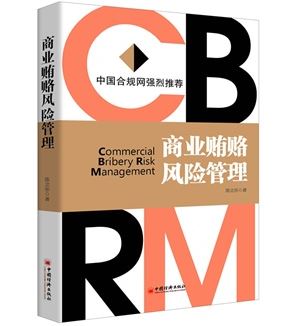On April 17, 2017 Monday, we hosted a
closed-door workshop on the subject of management of risk on outbound and
inbound bribery as well as some other internal frauds such as embezzlement,
conflict of interest, etc. The
participants include compliance officers and professionals, a senior official
from the Investigation Squad of Shanghai Administration for Industry and
Commerce, and a senior police officer.
For the purpose of the discussion, outbound
bribery is categorized as compliance bribery while inbound bribery is
categorized as fraud risk. Some other
items that are categorized as fraud risk include, embezzlement, conflict of
interest, self-dealing and the like.
The workshop witnessed an in-depth
discussion on the following questions:
1. Would an FCPA investigation
result in a domestic administrative or criminal investigation within China?
2. Anticompetitive bribery v.
corruptive bribery: where and how to draw a line apropos the regulatory and the
management perspective?
3. Is it true that a compliance
bird eats nothing? If not, why not; if yes, how to cope with it?
4. How to market effectively with
institutional clients (especially SOEs or State-owned hospitals) keeping in
compliance with the law?
5. If your competitor violates
anti-bribery law, would you blow the whistle on it before the governmental
agencies?
6. How to have trainings
effectively? And what are the other key measures to manage the compliance
risks?
7. How do you view the risk of
fraud (inbound bribery, conflict of interest, embezzlement, etc.) in your
industry? Is it more rampant in comparison to the risk of compliance?
8. How to effectively detect fraud
risks, considering the risk of fraud is difficult to detect?
9. Would you leverage the police
investigations to go after internal fraudsters? If so, how?
10. Should the police tear up a
company and mess it up when investigating an internal fraudster?
For the 10 questions, the meeting lasted
more than three hours. For some
questions, there are no clear answers, for example, how to deal with the
dilemma that a compliance bird eats nothing.
It seems to be a phenomenon that multinational companies would give up
some business opportunities to make sure there is no violation or
non-compliance of anti-bribery law, but there is a lot to do to make their businesses
less under-competitive or more promising, about which you may also read the
Report on Corporate Compliance Management in China (2016).
*The author Henry Chen, a Senior Partner of Dentons Shanghai Office, is licensed to practice law in China and the New York State of the U.S. Before joining Dentons, Henry worked in Ford as its AP Compliance Director. Henry Chen is a representative of China Delegation to negotiate over ISO19600 Compliance Management System - Guidelines, and the Vice Director of the Working Committee on China national standard Compliance Management System. Henry Chen is the author of the book Commercial Bribery Risk Management in China. You may also visit Henry's column "Competition & Monopoly" maintained with Caixin Media. Henry is available at henry.chen@dentons.cn

